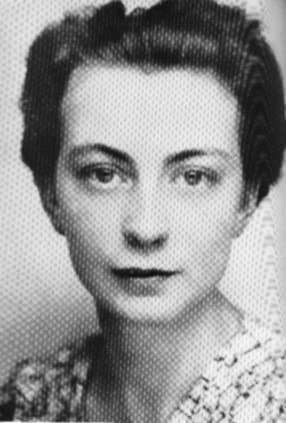
ANDRÉE DE JONGH
“My name is Andrée … but I would like you to call me by my codename, which is Dédée – which means ‘Little Mother’. From here on I will be your little mother, and you will be my little children. It will be my job to get my children to Spain and Freedom.”
Born in 1916 in Schaerbeck, in German-occupied Belgium Andrée Eugénie Adrienne De Jongh, would become to be known as “Dédée.”Brought up during World War I, she knew of occupation and conflict, and learnt the story of British nurse Edith Cavell who was executed by the Germans for spying. Cavells’ sacrifice became the beacon for Dédée’s resistance service.
10 May 1940 saw Germany invade Belgium again, 26 years after they had invaded in World War I. This time Dédée was a young woman working as a commercial artist, and soon volunteered to train as nurse, like her heroine Edit Cavell
Small, petite and feminine, Dédée looked much younger than her years, making it easier for her to slip unnoticed past the German occupiers. She began working for the resistance as a courier, and was given the name “Postman”, and then joined the Cométe Line helping downed aircrew evade the Germans. As a courier, she helped them through occupied Belgium and France and over the Pyrenees into neutral Spain, where a local courier would take them to Gibraltar and home to the UK.
The Cométe Line had over its years, 2000 volunteers, of whom 700 were arrested and 290 executed. The journey was 1200 miles long and dangerous for all involved, but the aircrews put their lives in the hands of this young girl sent to get them home. Their disbelief at whom they relied, was summed up by one airman: “Our lives are going to depend on a schoolgirl,” but trust her they did.
She taught them to walk behind her and apart from each other, to not smile or speak to anyone, to hide behind a newspaper while travelling or to messily eat an orange on a trip; nobody liked a messy eater.
Between August 1941 and December 1942, Dédée escorted 118 people, including 80 airmen to freedom through German patrols, past collaborators and over mountain passes. On 15 January 1943, on her 33rd trip, Dédée was escorting three airmen when she was betrayed to the Germans. Arrested, the Gestapo interrogated her over 20 times, and yet she never broke. Their disbelief that she ran the Cométe Line was mainly because she was ‘a little girl.’ Sadly, her father who was arrested with her was not so lucky and was executed as the leader of the escape line.
Dédée managed to survive her captivity at Ravensbruck Camp and was released in 1945.
Her lifelong duty to help people saw her work at leper colonies in the Congo and Ethiopia for over 28 years, before returning to home to Belgium, where she became a Countess.
Dédée died 30 October 2007, aged 90, and during her lifetime had been awarded:
The George Medal 1946
Medal of Freedom USA
Legion d’ Honneur France
Order of Leopold Belgium
Croix De Guerre Belgium
Not bad for a ‘schoolgirl.’
Andrée De Jongh is featured in the first-floor gallery of the IBCC’s exhibition. To book your tickets click here